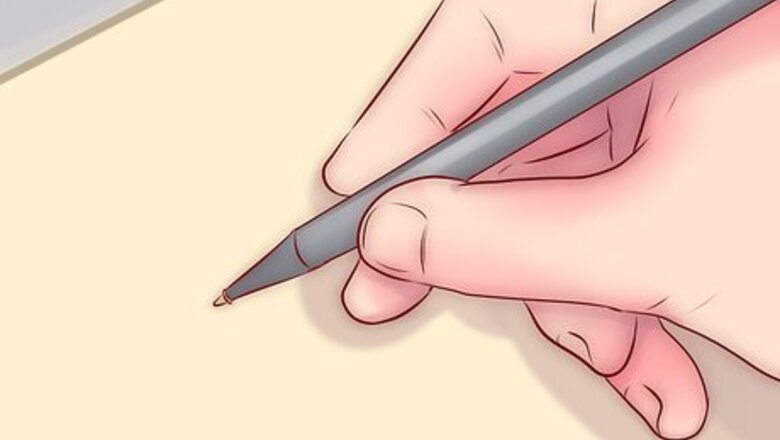
views
The Night Before The Test
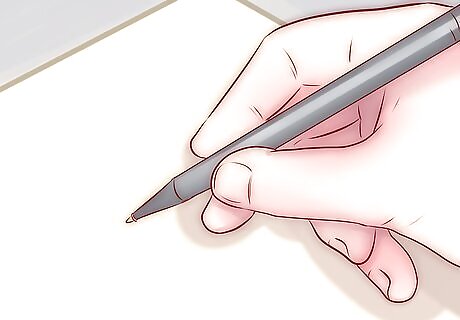
Make good notes. If you have minimal time to study for an exam, having good notes and note-taking skills will be essential for getting the most out of the night before. Find out what you really need to study. If your teacher holds a review session before the exam, take advantage of the opportunity. You'll find out what topics the teacher thinks are important and you'll have an opportunity to ask questions (although if you're having to cram, you probably have a few too many questions at this point). Many teachers hand out study guides, so be sure to use them. While they probably won't cover everything that will be on the test, you'll at least be able to focus on the key topics. Get out your lecture notes. Assuming you attended class regularly, you should have some notes to look over. If you don't have any notes, try to get copies from a classmate. Your class notes are a treasure trove of important knowledge because your teacher covers what he or she thinks is most important.
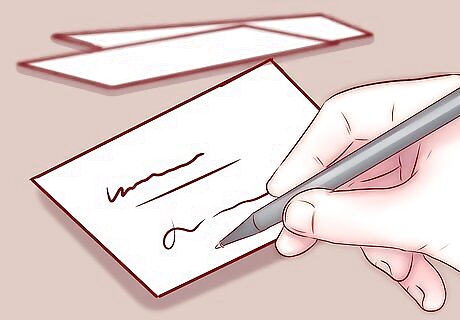
Note the important concepts. As you go through your notes, find important definitions, concepts and equations. If you don't know them by heart, write them down on a separate piece of paper—your cramming notes—or on small note cards. This will help you identify what you need to know, and you'll have a handy set of flash cards. The act of rewriting may also help you memorize the content. If you're a good visual learner, then this will definitely help. If you're a good auditory learner, meaning you learn by hearing, recite the words as you write them down on the note cards. If you have enough time, consider rewriting your note cards several times. It may seem like overkill, but if you're trying to learn facts and information, it's very helpful. If you're trying to learn equations or more practical applications, this repetition is not as useful.
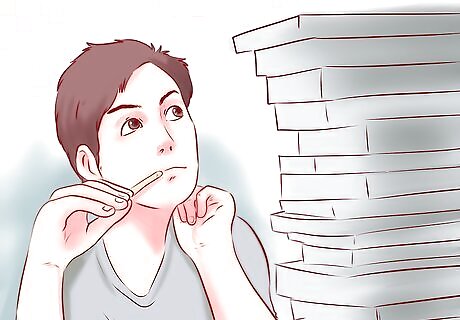
Study effectively. You obviously won't have time to cover everything that might be on the test, but you can narrow down what will likely be covered and find ways to best focus on these concepts. Identify key topics. Go through your study guide and your cramming notes and look up the important or most repeated topics in your textbook. Scan the key sections of your text and write down any new information you find that seems important. The idea here is not to write down everything, but rather to identify the specific ideas, facts or equations that are likely to be on the test and focus on those topics as much as possible. Look at the beginnings and ends of textbook chapters. The first page of a chapter often identifies key points that will aid your understanding of the material. The last couple of pages will often summarize the chapter, define or highlight key terms, and, in the case of math texts, list important equations. Contemplate possible essay questions (if applicable) and how you would answer them. By now you should have at least a light grasp on the material. Think about the overarching concepts involved and outline (preferably on paper) your approach to essay questions.
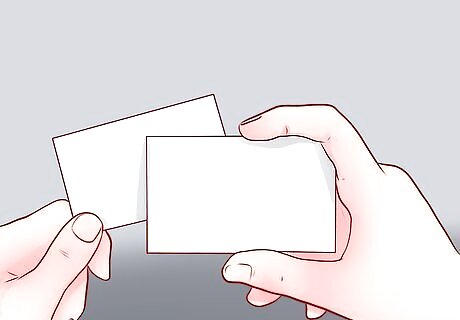
Do a light run-through. This is where the rubber starts meeting the road. Soak up all the information you've furiously assembled, test yourself, and evaluate quickly how you might have done. This should tell you what areas of study you still need to focus on. Review your flashcards or cramming notes first. Go through the key topics quickly. If you feel you understand and can remember a certain topic or equation, cross it off the list or set that flashcard aside. If you come up with additional questions, look them up in your notes or online (just make sure to use a reliable website). Test yourself. If your teacher handed out a practice test, do it now. If not, do the practice tests or review questions at the ends of your textbook chapters. Only do the questions that are directly relevant to the concepts you've identified as important. Don't spend a lot of time on each question. If you get stuck on a question, note it and come back to it after you grade your test. Grade your self-tests. Be honest with your grading. If you're not, you will only hurt yourself when it comes to the actual test. Look at the questions you got wrong and compare those to your cramming notes or flashcards. You may need to make some new flashcards or revisit some of the concepts you thought you knew.
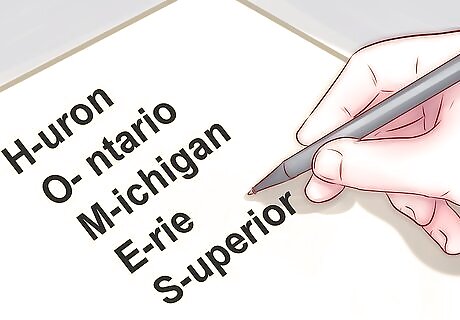
If facts aren't sticking, and studying isn't going well, try some memorization strategies. The brain never forgets. Forgetting a piece of information is either the failure to properly store it, the failure to recall it, or the failure to store it in a way that it can be found. Practice some simple memorization techniques to help you supercharge your last-minute cram session. Try using a mnemonic device. That's just a fancy word for "memory device," meaning a quick and simple way to remember something. Remember when your teacher taught you ROYGBIV to help you remember the sequence of colors in the rainbow? Making something into an acronym, like "ROYGBIV," is a mnemonic device. Try using "pegs" to hang the information on. It could be making the information into a rhyme, relating it to an image you're familiar with, or telling yourself a story about it you know you'll remember. Try to take information that's digested with one sense (words are digested through sight) and try to digest it in another. Try chunking. This just means organizing something under a category. For example, if you're studying Finance, try to group stocks, bonds, funds, etc. under one big category, securities, and understand what that category means. Organize key ideas under concepts.
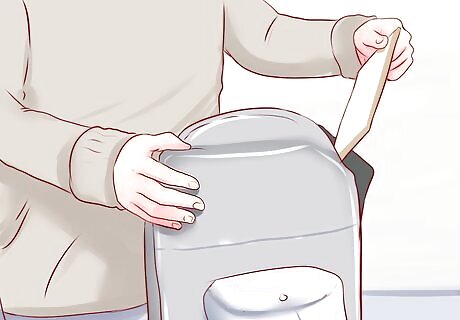
Pack up and get some sleep. Sometimes, you just don't have enough time for sleep, but do try to get as much sleep as possible before your test. It's a good idea to get the bulk of your cramming in before going to bed and then get up with enough time to review a bit more. If you pull an all nighter, you will be tired and more prone to making careless mistakes on the test. Studies indicate that loss of sleep erodes memory performance. Not only this, lack of sleep will make last-minute bits of information more difficult to recall. So focus on cramming as much as possible before getting sleepy and go to bed at an early hour.
The Day Of The Test
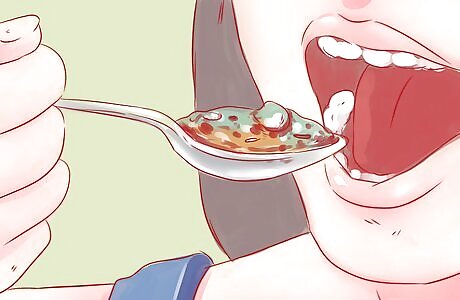
Get a light, balanced breakfast at least an hour before the test. Avoid eating only carbohydrates, and instead grab a meal that is high in protein (eggs), omega-3 fatty acids (salmon), fiber (black beans), or fruits and vegetables.f Some "super foods" that help increase brain function and longevity include: blueberries, salmon, nuts and seeds, avocados, pomegranate juice, green tea, and dark chocolate. You may consider chomping down on one or two of these as part of your breakfast.

Plan a study session. Study in the car or on the bus with a friend. Get a few friends together the hour before the exam and quiz each other on key concepts. You want the information to be as fresh as possible in your mind. Be sure not to let the study session devolve into social hour.
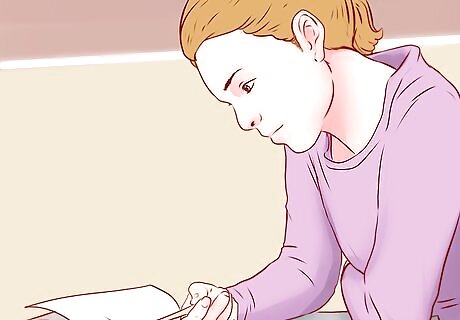
Review all your cramming notes or flashcards one more time. Right before the test, go through every one of your flashcards or notes, even if you think you have memorized them. You want everything to be fresh in your mind when you take the test. If you are having some trouble remembering a certain definition or equation, write it down six or seven times in a row. That should firmly imprint it on your brain.
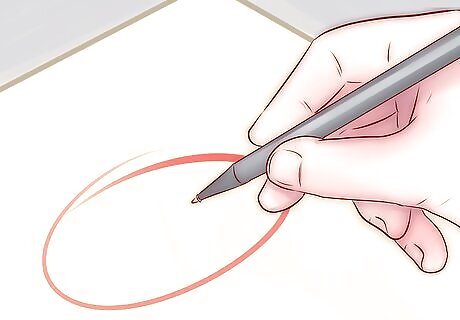
Identify a particular piece of information which is most important for the test and which you really need to remember. Make sure you do not take an info longer than three to four words/one formula at a time. Stare at your most important piece of information for at least 1–2 minutes. Concentrate well. Rewrite as the exam approaches to maximize memorization.
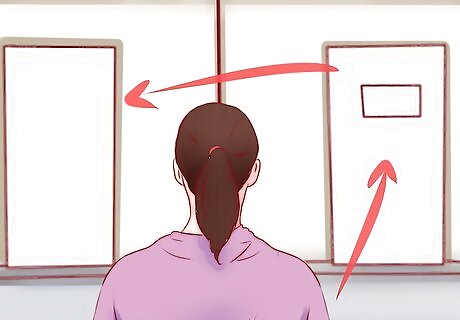
Get to the exam room early and visit the bathroom. Get to the exam room at least 5 minutes before the test, and make sure to hit the little girls' or boys' room before you settle down into your seat. You don't want to worry about nature's call while you're taking a test. After that, settle down, relax, and be confident. Visualize success.



















Comments
0 comment